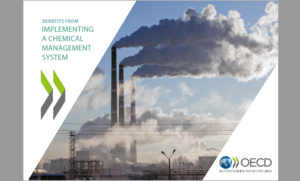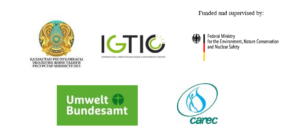
Alberta Tier 1 Soil Remediation Guidelines
Download Alberta Tier 1 Soil Remediation Guidelines
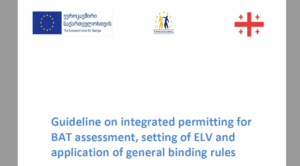
Guideline on integrated permitting for BAT assessment, setting of ELV and application of general binding rules
Download PDF
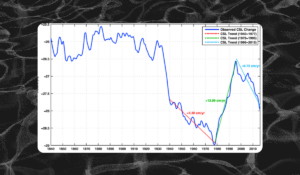
The Caspian Sea is under threat of desertification. What are the causes and consequences?
The article by political scientist Aida Amangeldina is devoted to the threat of desertification of the Caspian Sea. The text examines the main causes and consequences of this problem, as well as possible solutions for countries whose territories are affected by the impending environmental disaster: Azerbaijan, Iran, Russia, Turkmenistan and

Call to Do Good: Promoting Waste Recycling in Almaty through Civil Society Initiatives
Call to Do Good: Promoting Waste Recycling in Almaty through Civil Society Initiatives Aliya Tskhai a* , Nazilya Kulpeshova b a University of St Andrews, College Gate, St Andrews, Scotland, UK b Independent Researcher *Email: aliya.tskhay@gmail.com Nazilya Kulpeshova: nazya9834@gmail.com https://doi.org/10.29258/CAJSCR/2024-R1.v3-1/59-73.eng Annotation Waste recycling is a key component of reducing carbon emissions and improving the environment, especially in
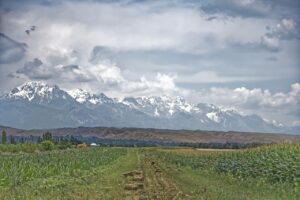
The Impact of Climate Change on Rural Migration in Central Asia
The Impact of Climate Change on Rural Migration in Central Asia Nina Miholcic-Ivkovic Asylum and Migration Programme, Belgrade Centre for Human Rights, Knez Milos 4, 11000 Belgrade, Serbia Email: ninamih87@gmail.com https://doi.org/10.29258/CAJSCR/2024-R1.v3-1/74-95.eng Annotation Central Asia is considered a region highly vulnerable to climate change and, therefore, the region is susceptible to climate-induced

Climate Change and Human Health in Central Asia: A Literature Review
Climate Change and Human Health in Central Asia: A Literature Review Susan Legro Independent researcher susan@ecoltdgroup.com https://doi.org/10.29258/CAJSCR/2024-R1.v3-1/1-31.eng Annotation Countries in Central Asia are highly vulnerable to climate change and face a range of health impacts and pressure to adapt to them. At the same time, targeted mitigation measures, such as

A global foresight report on planetary health and human wellbeing
This mirrors the growing interest and demand for foresight that is also reinforced by the United Nations reform agenda and the Secretary-General’s report on ‘Our Common Agenda’, which calls for all UN agencies, as well as all UN member states, to engage foresight practices more deeply and apply the derived

The largest lakes and rivers of Kyrgyzstan. Parameters
Ecology AKIpress – There are 3 largest lakes in Kyrgyzstan. Such data is provided in the 2025 civil budget prepared by the Ministry of Finance. Lakes and parameters: Issyk-Kul – the area of the water surface is 6236 km² (maximum depth 668 m), the volume of water is 1738 km³. The length

